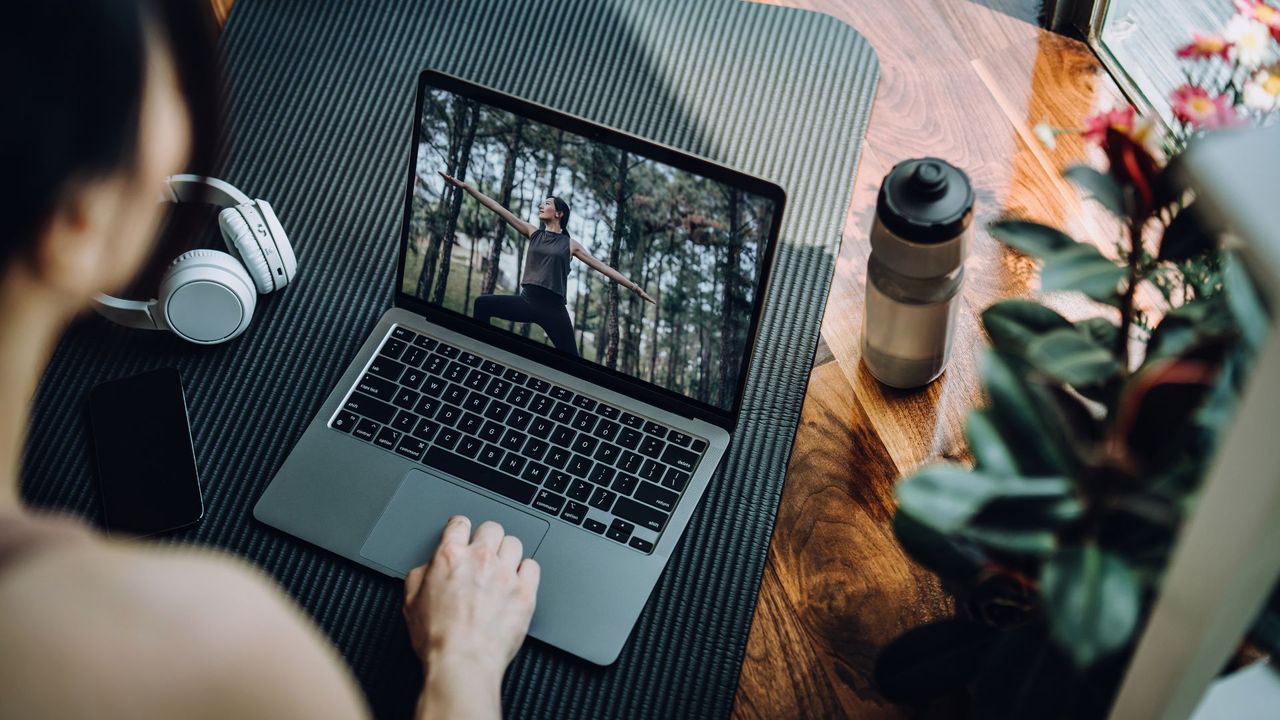
One of the best strength training apps can help you make the most of this important exercise, whether you're brand new to lifting weights or you want to create a routine at home.
No matter your access to equipment, space, and budget, there's an option out there for everyone. Most of the apps in this list will require you to have a set of good dumbbells at least - kettlebells and resistance bands will also help. However, I've also made sure to include plenty of options for those with no equipment at all, and those who have access to a full gym.
As woman&home's digital health editor, I've spent my fair share of time on these apps in my home studio, at the gym, and on hotel balconies while on holiday. Only the very best, worth the time and energy (and money, in some cases) to use them, have been included.
The best strength training apps, tested by us
Best free strength training app
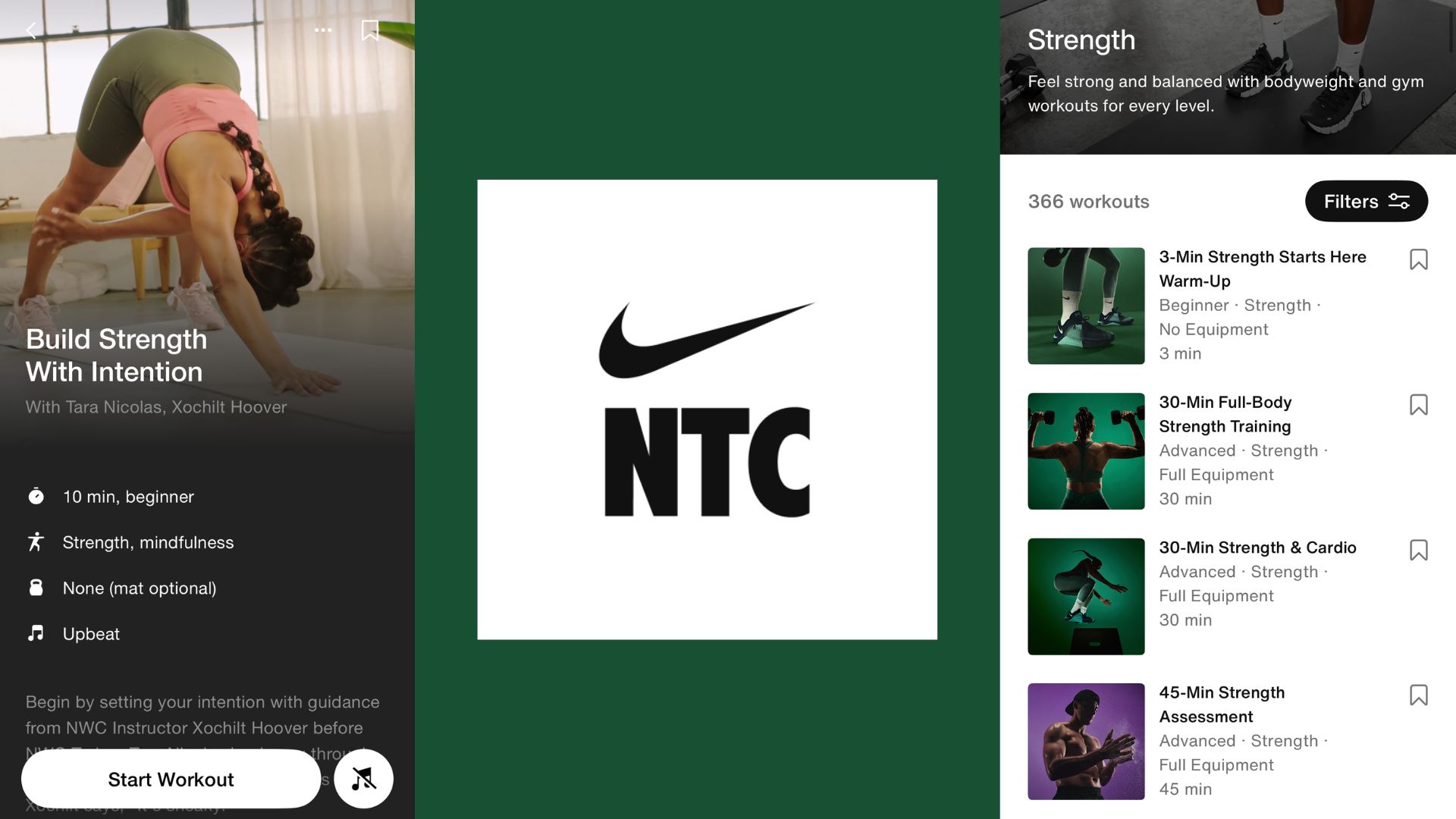
Much like Gymshark, Nike is best known for the kit it sells. From the running shoes that help create marathon winners to athleisure wear, this brand has led the way in fitness for a generation already. The brand has added a training app, which is totally free to download and use as often as you like and for as long as you like, into their collection now, too, with much success.
The Nike Training App offers four types of resistance training workouts: Endurance, Mobility, Strength, and Yoga. The first of the four (Endurance) is the best for beginners and those looking to do a bodyweight workout, as it involves no equipment and focuses on building up your fitness. The Strength portion of the app also features plenty of equipment-free options, but you'll find a few where you'll need a basic set of weights.
All the workouts are customisable with filters you can apply to find the right workout for you, whether you want to work out for 10 minutes or 45 minutes. You can even filter workouts by how you're feeling on any given day. Need to boost your mood? Take on the 'Energetic' yoga flow.
The Nike Run App takes one of the top spots in our tried and tested list of the best running apps, too, so if you're weighing up cardio vs strength training, it may be worth downloading both.
Ranging from 1 to 10kg, the versatility is what makes these unique dumbbells one of my favourites - even for those who don't want to sign up for the Les Mills app. The shape means you can hold them five or more ways, so they are suitable for all kinds of single and double-hand movements that a regular dumbbell wouldn't allow for, as well as the basics like curls and presses.
Pros
- Uniquely shaped
- Suitable for all workouts
- Variety of sizes available
- Premium materials
Cons
- Very expensive to buy individually
If I had to buy just one pair of dumbbells, it would be adjustable plates every time. This set from Amazon Basics is very simple - it has eight plates (four 1.1kg and four 2.3kg, adding up to 17.2kg on both) that spin on and off the bar, up to 15kg. This makes it a lot easier to achieve progressive overload (when you make the workouts harder as you get stronger, so you can keep progressing) on a budget.
Pros
- Budget friendly by comparison to others
- Durable
- Ideal for progressive overload
Cons
- Takes a while to get the weights on / off the bar
Resistance bands are the second most-useful tool in any home gym, second to dumbbells, but much easier to store. This one from MyProtein comes in several resistances and is even more budget-friendly, making it the perfect workout companion for those short on space or anyone preferring not to have dumbbells at home.
Pros
- Premium materials
- Comes with useful accessories
- Storage bag included
Cons
- Bulky to store
Best strength training app for guided workouts
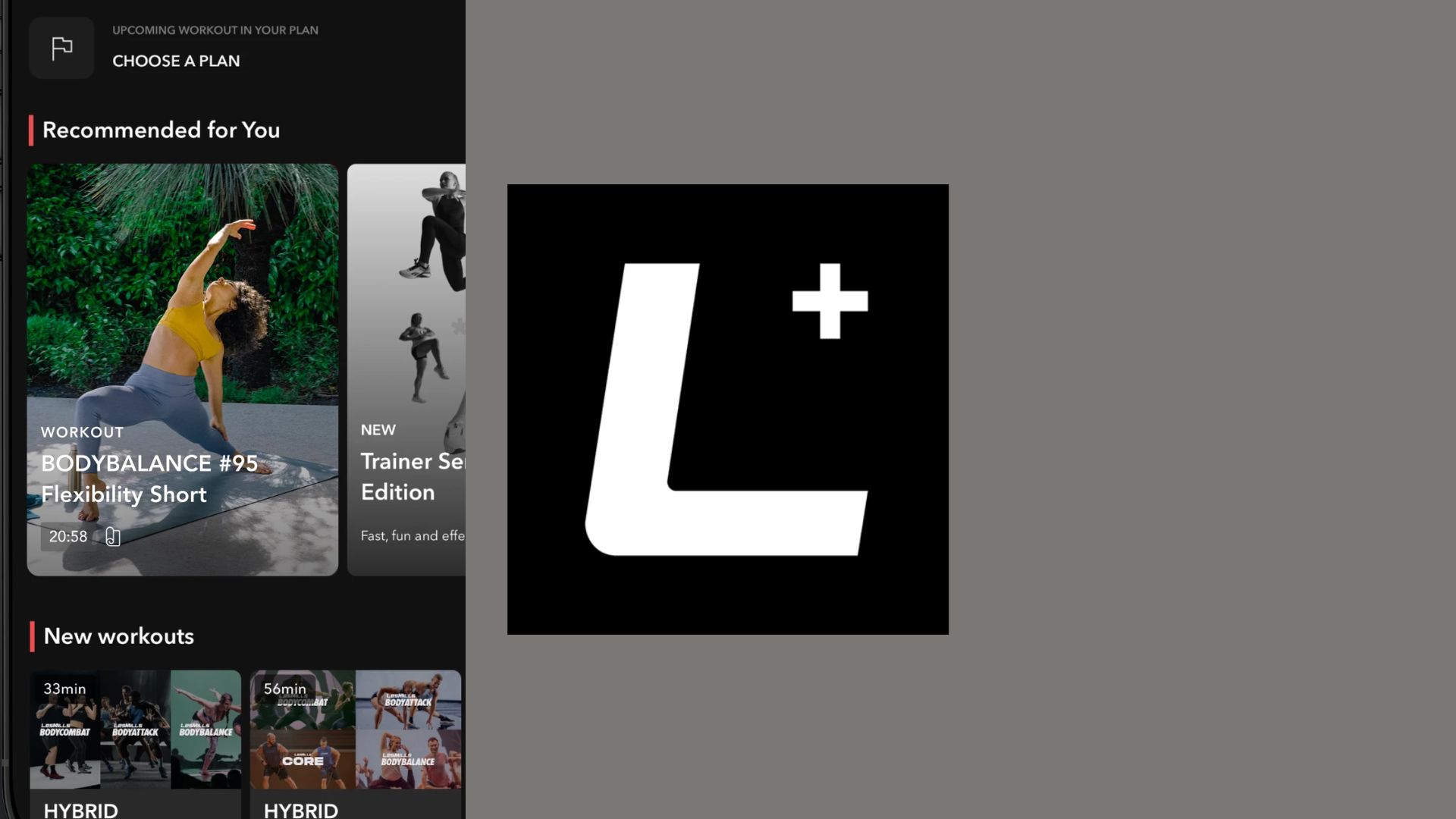
If you want to strength train from home but you don't have the motivation to dig your dumbbells out yourself, then I'd recommend Les Mills+. This New Zealand-born platform has hundreds of pre-recorded resistance workouts to choose from using dumbbells and resistance bands.
BodyPump is the original strength class and the one I'd recommend. While the instructors in the class use the Les Mills Smartbar, you can actually use any weight you have to hand to do the workout. The focus is on lots of repetitions using light weights, so you'll definitely feel the burn - and the strength gains in weeks to come. If you want to level up, try BodyPump Heavy.
I'd also recommend the regular functional strength training classes for those new to this type of exercise or looking for something a little more low-impact. This is your more basic class that teaches smaller compound lifts and prioritises form over anything else.
I've done regular strength sessions and a home Pilates workout with the Les Mills app, and I truly believe it's the best catch-all for this type of training. The instructors are personalities themselves, the workouts are challenging (without being impossible to do), and easy to follow along with.
You'll also find cardio workouts on the Les Mills app, which you can do on your own stationary bike or treadmill without issue. However, I have found the strength workouts are the best of the bunch. If you're looking for cardio, I'd recommend Peloton Cross Training instead - or the regular Peloton app.
Best strength training app for the gym
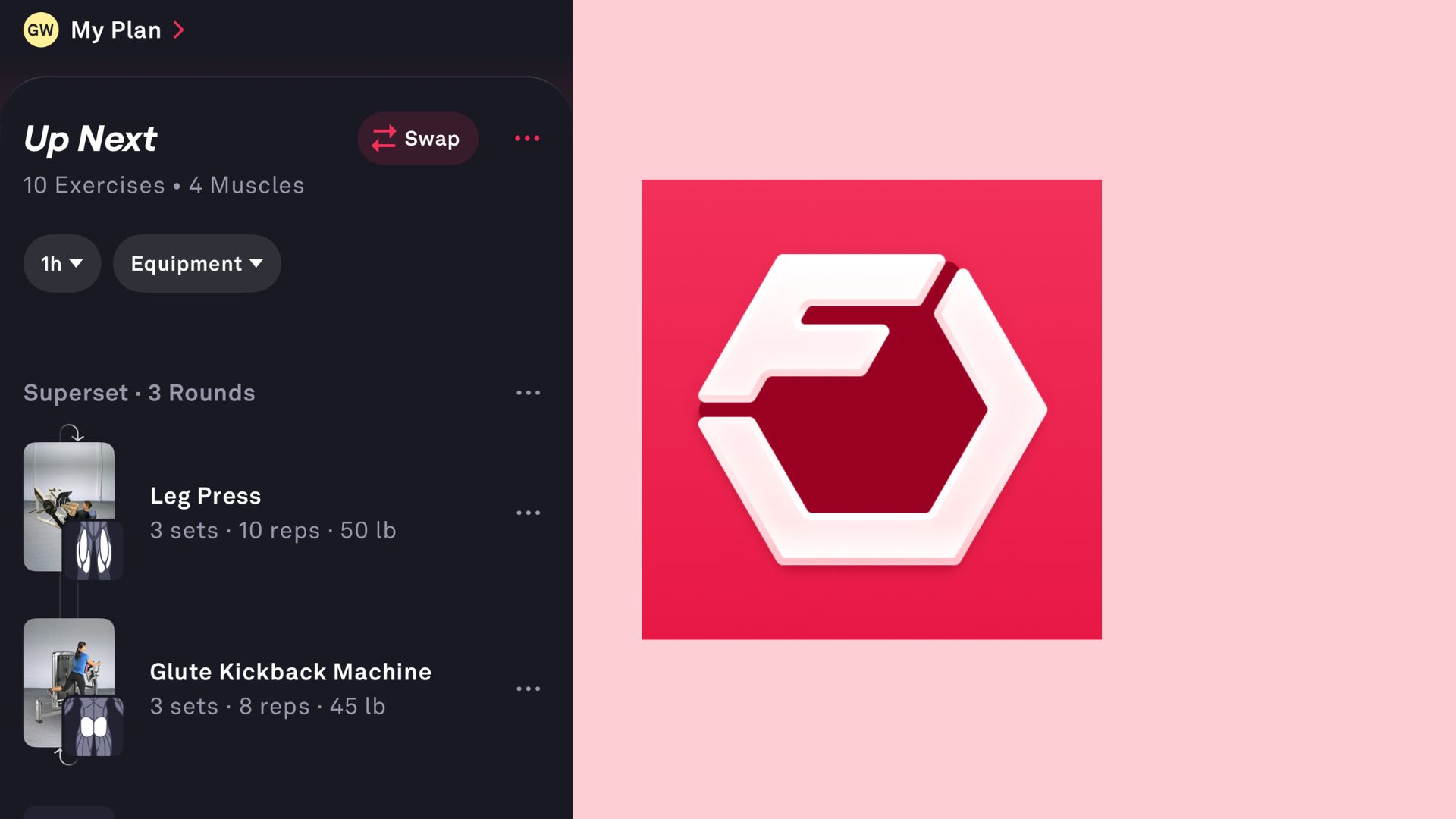
Fitbod is the strength training app I've had in the aptly named 'Gym' folder on my phone for the longest. It's specifically designed to be used in the gym (but it does have bodyweight workouts available) as the main function of the app is to design a reps-and-sets-based workout plan.
On sign-up, you'll find several filters to tap through, including workout duration, equipment, current fitness level, and the muscles you want to target during your workout. You can also choose to blend bodyweight moves with resistance and add an app-led warm-up or cool-down to your session, which makes the app entirely customisable to your needs.
This isn't an app for those new to strength training, however. You'll need to have some knowledge of the activity to start with and know how to use free weights and gym equipment to safely and effectively use the app. If you've already been going to the gym for a few years or are looking to move away from in-person personal training sessions and plan your own workouts, this could be the app for you. While there are form demonstrations available to help with technique, there are no follow-along video workouts available.
Best strength training app for beginners
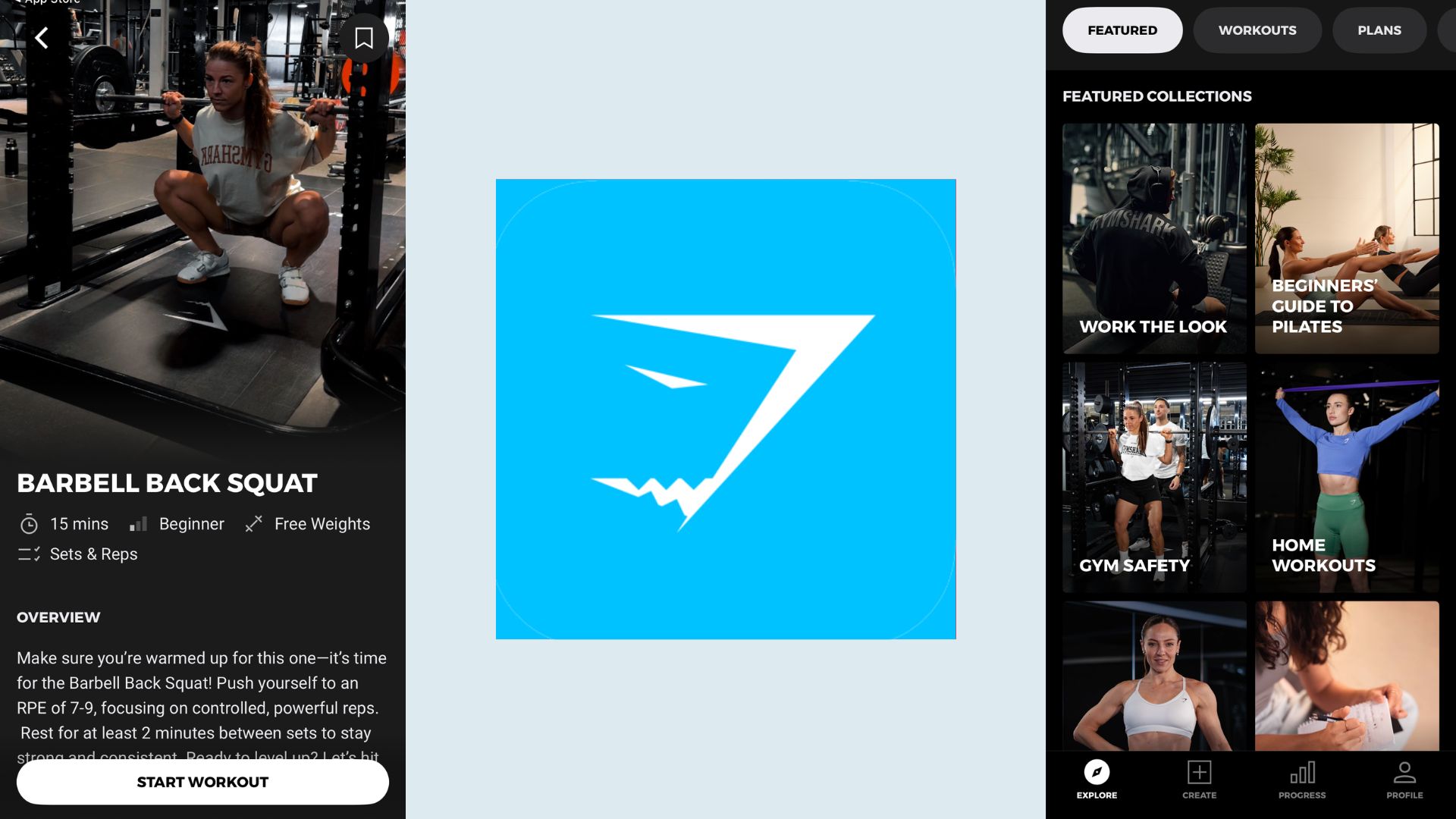
Gymshark may be best known for selling the best workout leggings and running shorts but they've expanded their offering in recent years to include a strength training app. The Gymshark Training App is our best pick for beginners, as you can truly walk onto your mat, without any equipment, for the first time and take up strength training for the very first time. No prior knowledge is needed. This app has it all and is completely free to download and use.
Along with follow-along video workouts, the app offers a selection of 'How To' demonstrations. These cover techniques to start weightlifting for beginners - like deadlifts, squats, and overhead presses, along with guides on using the equipment in the gym. The Create section of the app offers you the freedom to create your workout from scratch, as well, much like the Fitbod app, but there are clear demonstration videos with each move to ensure your form is picture-perfect before you get started. Here, I also found the largest collection of bodyweight-only moves out of all the apps. If you're looking to do strength training at home for beginners, this could be the best place to start.
There are no hidden costs or additional extras to purchase, and the app offers both individual workouts - filtered out by type (e.g. dumbbell or body weight), body part, and format (sets and reps or follow-along videos) - and full programs to follow over several weeks. If you're based in London, you can also sign up for their free, weekly workout classes and run club that takes place at the Regent's Street Store.
Best strength training app for Apple users
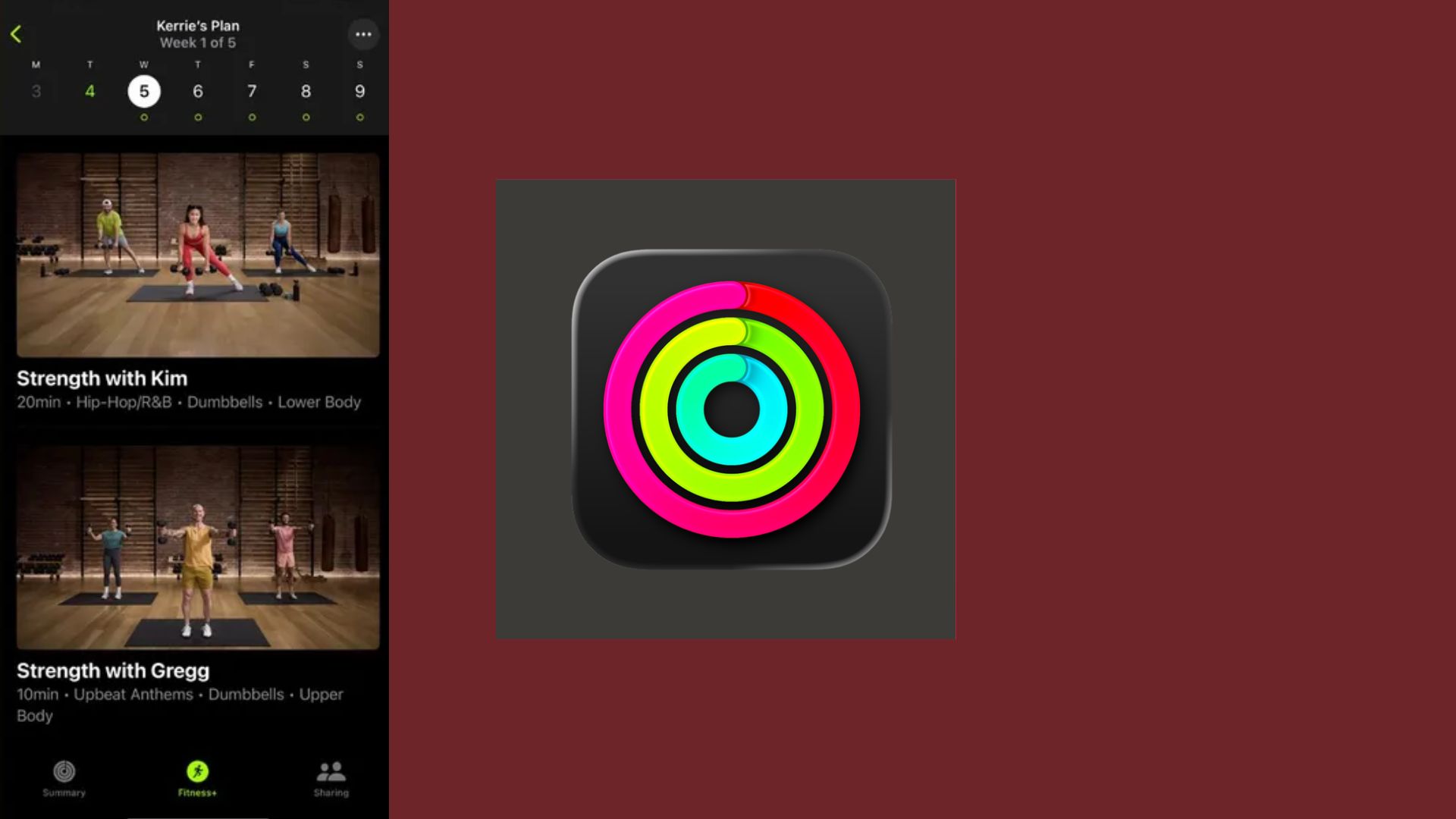
Apple Fitness+ is the strength training app of choice for Editor Kerrie Hughes. While only those with an Apple product (e.g. Apple TV, iPhone, or iPad) will be able to download this workout platform, if that's your chosen tech of choice, then it should be a top consideration.
"I've done strength training for the last two decades. I'm well versed in lifting weights and doing bodyweight exercises, but I have to say, he 3 Perfect Weeks of Strength programme on Apple Fitness+ humbled me. I was apprehensive that I would breeze through it. I’ve never been happier to be proved wrong. The way these classes are structured makes them accessible to all. If you have experience with lifting weights, you can easily choose a resistance and a range of motion that challenges you. And if you are a total beginner, there is always someone behind the main instructor in the class demoing a scaled-back option, which isn't something other apps have. The trainers also offer advice on techniques to help make things a little easier with each new movement," she says.
Along with these dedicated programmes, there are one-off strength classes you can follow, and several other workout types - including Pilates abs workout and Pilates with weights, if you're looking to focus on low-impact strength, for example.
Best strength training app for women over 45
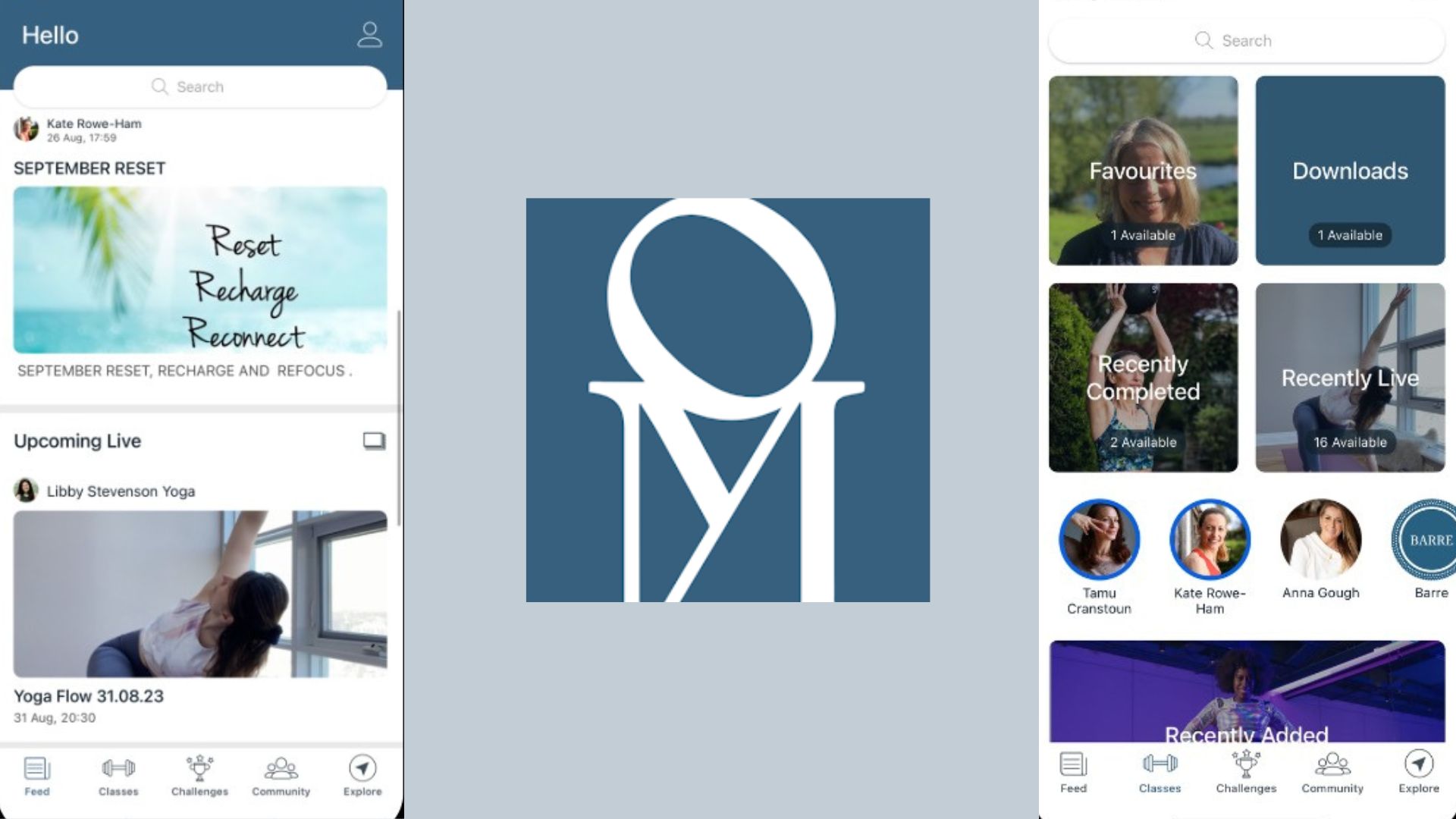
Strength training is a good practice to get into at any stage of life, but it's even more important with the onset of perimenopause. Much like doing Pilates or yoga over 50, strength training during this life stage can help prevent muscle loss, reduce the risk of conditions like osteoporosis, and help boost your mood. Owning Your Menopause is an app designed to help with this, founded by specialist personal trainer Kate Rowe-Ham.
There are hundreds of video-led workouts available already in the app (including almost 300 strength-specific workouts) with live workouts scheduled every week. Within the library of classes, you'll find sessions devoted to lower-body, upper-body, full-body work, and conditioning. You'll need a set of dumbbells to make the most of this app, but modifications can be made if you're working with your body weight at the moment.
Owning Your Menopause is currently the only app that offers live workouts based around strength training, designed to support women experiencing the symptoms of menopause, as well as those who are postmenopausal. It offers a personal feel that the other apps don't, as you'll also find educational materials on the platform, available to answer any nutrition-based questions to complement your training, and a community of like-minded people to discuss your experiences, concerns, and wins with, separated into useful topics like Sober Living and Menopause in the Workplace.
Best strength training app for cardio
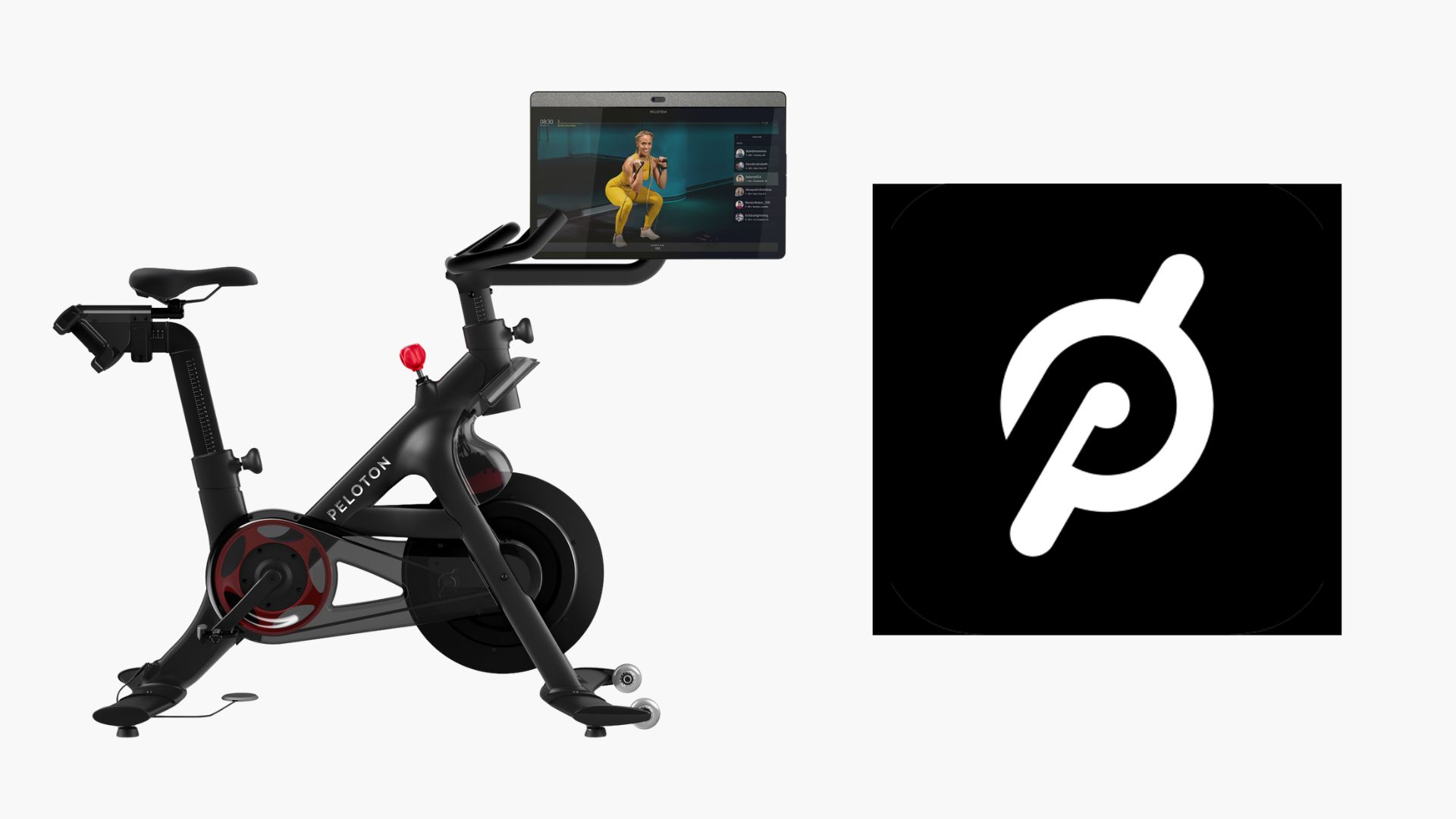
In October 2025, Peloton announced an overhaul of its bike and treadmill machines with the Cross Training series. The upgraded Bike+ now comes with a 306-degree swivel screen, better speakers, and Peloton IQ. Together, these take Peloton from being a cardio-focused training app into a multi-disciplinary workout platform to at least rival (if not outperform) any other strength training app.
The swivel screen means you can turn your space into a spin-studio-turned-gym and keep the trainer focused on you, no matter where you are, and the Peloton IQ keeps a trained eye on your form and progress both in classes and in your own workouts, which you can choose in the on-bike app, to monitor both and make suggestions - without holding video in the system.
Of course, you have access to hundreds of pre-recorded workouts and live classes via the Peloton platform as usual. If you opt for the Bike+, you can spin to your heart's content before going onto your strength workouts, outdoor walk, Pilates, yoga, or meditation. Having had my hands on the new bike, I can confirm it's all very impressive (and genuinely motivating, importantly) and makes Peloton worth it still in 2025.
It's certainly the most advanced strength training platform on my list - and possibly every list out there. With that comes a cost, and the bike is not cheap. However, the monthly platform subscription is still cheaper than one PT session in most places, and the Bike+ is undoubtedly a one-stop solution to full-body strength and cardio fitness.
How to choose the best strength training app for you
- Workout of choice: If you know you don't like lifting weights but you love doing Pilates, then it's worth trying a strength app with Pilates workouts built in - like Les Mills+ or trying one of the best Pilates apps. Don't try and force yourself to enjoy something you don't when the benefit is largely the same - at least for beginners.
- Try out a selection of apps: You may find that the first app you download isn't the one for you - and that's very normal. Have a look through the other options on this list before making a final decision. Everyone is different, and you might get on better with doing callisthenics for beginners via Apple Fitness+ than a resistance band workout via Fitbod.
- Consider your budget: Money's tighter than ever, but it's worth looking at what you can reasonably afford if you're looking to get the most from your app. While £45 for Peloton might sound like a lot, as you've already bought the bike, you're essentially getting a PT and exercise classes. I'd challenge anyone to find that for the same price in person.
- Assess your space and equipment: If you have an entire gym full of equipment, so you can weigh up machines vs free weights, the type of strength workouts you're going to be able to do is very different from those who have two dumbbells and just enough space to work out from home. Neither one is better than the other, as it's about getting the workout done at the end of the day, but there are different apps suited to each.
Is 30 minutes of strength training a day enough?
Strength training every day may be a little excessive for most people. How often you should lift weights depends on your lifestyle and goals but most people won't need to do this much to see progress. Doing too much can see the opposite result and lead to fatigue and injury.
Instead, per week, Rowe-Ham recommends three to five strength training sessions. That can be any type of strength training too - a chair workout, a weights session at the gym, or a bodyweight workout at home. "To see progress, add resistance or load to your sessions," she adds. Otherwise known as progressive overload, to get stronger or build muscle, you'll need to make your workouts harder so your body is forced to adapt to the stressor.






